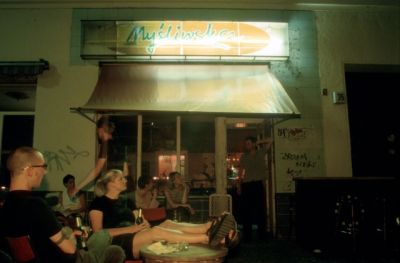Słubfurt and Nowa Amerika

“Szanowni Damen und Panowie, herzlich witamy in Słubfurt, einer Stadt, które liegt auf polskiej und deutscher stronie”. These are the words used by the artist and tourist guide, Michael Kurzwelly, to welcome visitors to a guided tour of Frankfurt (Oder) and Słubice. The faces of the guests express amazement and curiosity, so Kurzwelly explains: “Słubfurt is the first town that is half in Germany and half in Poland. Its name is derived from Słubice (Słub) and Frankfurt (Furt).”
Słubfurt was founded in 1999 and registered as an organisation one year later. “Słubfurtisch” is a language created from elements of German and Polish. In 2008, the Council of the imaginary town adopted an 84-point constitution to regulate the functioning of the community.
The art project soon turned into an initiative that provided residents on both sides of the Oder with opportunities to get to know each other better. The task was all the more difficult because the border had been closed for a long time and stereotypes were still alive in both countries. Selective actions were taken to overcome mutual suspicions: one of these was the “Bon Appetit – Smacznego” campaign in 2000, when 16 families from Słubice and Frankfurt invited German and Polish guests to eat with them. As a result, new friendships began.
The Słubfurt Olympic Games in 2003 was another memorable event. They took place on the Brückenplatz in Frankfurt, not far from the border bridge between the German river bank and the Polish town of Słubice. The Olympic programme was put together by Słubfurter with their own sense of humour. The most popular discipline was the “Tossing packs of cigarettes” across the border. The games took place once more in 2016. They featured mixed German-Polish teams that came together by drawing lots.
In 2009, posters publicising previously unknown political parties were put up on the streets of Słubfurt as part of an art project aimed at mobilising the citizens of both towns to conceive a united future. A fictitious German-Polish parliament stood for election, and this eventually became a platform for implementing common ideas. It was also an important voice in the debates held by the real councils in Słubice and Frankfurt. In 2011, the Słubfurt “local elections” received the award of the Brandenburg State Agency for Civic Education for promoting political participation among people in the border region.







